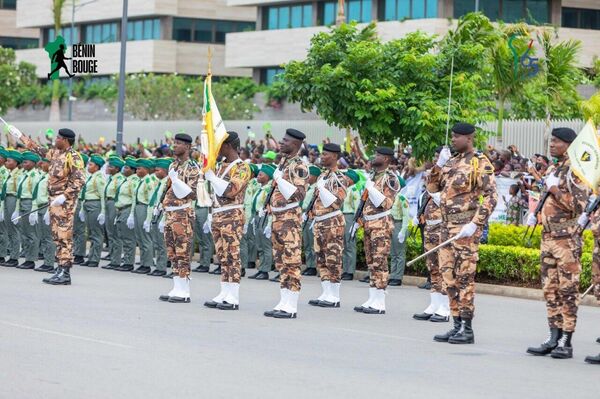
As Benin marks 65 years of independence from colonial rule, Dr. Dieudonné Awo, a lecturer in Economic and Social History at the University of Abomey-Calavi, offers a critical reflection on the nation’s political journey since its sovereignty was declared on August 1, 1960.
“From 1960 to today, our country has, in its institutional evolution, known three types of rulers,” said Dr. Awo. He describes the first period (1960–1972) as one of political turbulence, driven by a collective desire among post-independence leaders to quickly erase the economic and social setbacks left by colonialism.
The early enthusiasm, however, was undermined by internal rivalries and what he calls “a short-term vision” of development.
“It was an atmosphere of political rivalries… but beyond these tensions, there was the joy of gaining independence,” Awo recalled, citing leaders such as Hubert Maga, Justin Ahomadégbé, and Sourou Apithy as central figures during this volatile time.
The second phase, from 1972 to around 1990, was defined by the military-Marxist regime led by President Mathieu Kérékou. This era, Awo noted, was marked by political stability but economic challenges.
“The policy of the gendarme state also showed its limits,” he explained. Despite early hopes and ideological unity, the regime ultimately succumbed to mismanagement, economic downturns, and the weight of external pressures.
With the 1990 democratic transition, Benin entered a third phase, which Awo describes as one of maturation.
“This new type of leader is a far-sighted type… one that draws up long-term development plans,” he observed. He pointed to recent initiatives, including a 2060 development vision, as proof of growing political foresight.
On the economic front, Dr. Awo offered a mixed assessment.
“I am tempted to answer yes and no,” he said when asked whether Beninese people live well today. He acknowledged visible progress in infrastructure, access to utilities, and institutional reforms, but emphasized that “national construction requires sacrifice.”
“All Beninese are suffering from the high cost of living,” he added, noting that economic hardship is shared across all social strata.
The recent increase in the minimum wage from 40,000 to 52,000 CFA francs was, according to him, a small but meaningful step toward easing the burden on low-income earners.
In conclusion, Dr. Awo said, “Benin is making its own way with its difficulties, its sorrows, and its joys. But it is moving forward reassuringly on the path to national development.”



